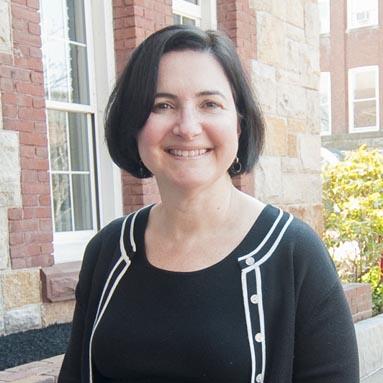
SDG 4: Quality Education - Ensure inclusive and equitable quality education and promote lifelong learning opportunities for all


By training, I am a political historian of China and Japan. Coming to WPI has expanded how I view my own research and teaching and what can be done with them. I’ve led WPI’s efforts to build China-related programs for STEM students on campus and off. With like-minded colleagues I helped establish and now direct WPI’s East Asia Hub (formally China Hub), established and co-direct WPI’s Hangzhou and Taiwan Project Centers, and advise the Chinese Studies minor. With WPI’s student body in mind, I’ve worked to integrate science and technology into my teaching on the histories and cultures of East Asia and beyond, and I’ve worked to integrate case studies on China and Japan into the STEM curriculum. I value WPI’s commitment to project-based learning (PBL) and incorporate PBL in all my classes.
My most recent books aim to bring greater understanding to the general public of China’s rise and the complexities of its global position and internal politics: The China Questions 2: Critical Insights into US-China Relations (with MA Carrai and M Szonyi; Harvard University Press, 2022) and The China Questions: Critical Insights into a Rising Power (with M Szonyi; Harvard University Press, 2018). Both volumes bring together top experts to address critical issues for a general audience. The China Questions 2 received an Honorable Mention for the 2023 Buchanan Prize for Curricular Materials from the Association for Asian Studies. My earlier book, Negotiated Power in Late Imperial China (Cornell University Press, 2008), examines Chinese institutional reform processes and the politics behind them. I also publish on PBL and international engineering. Current projects include a new The China Questions volume focused on business in China and a book on political identity in the Taiwan Strait.
My professional activities include serving as the executive director of the Fairbank Center for Chinese Studies at Harvard University as well as the Harvard China Fund, an executive board member of the Urban China Research Network, and a fellow at the Expanding East Asia Studies collaborative at Columbia University. I am a long-term research affiliate at the Fairbank Center and member of the National Committee of United States-China Relations.

By training, I am a political historian of China and Japan. Coming to WPI has expanded how I view my own research and teaching and what can be done with them. I’ve led WPI’s efforts to build China-related programs for STEM students on campus and off. With like-minded colleagues I helped establish and now direct WPI’s East Asia Hub (formally China Hub), established and co-direct WPI’s Hangzhou and Taiwan Project Centers, and advise the Chinese Studies minor. With WPI’s student body in mind, I’ve worked to integrate science and technology into my teaching on the histories and cultures of East Asia and beyond, and I’ve worked to integrate case studies on China and Japan into the STEM curriculum. I value WPI’s commitment to project-based learning (PBL) and incorporate PBL in all my classes.
My most recent books aim to bring greater understanding to the general public of China’s rise and the complexities of its global position and internal politics: The China Questions 2: Critical Insights into US-China Relations (with MA Carrai and M Szonyi; Harvard University Press, 2022) and The China Questions: Critical Insights into a Rising Power (with M Szonyi; Harvard University Press, 2018). Both volumes bring together top experts to address critical issues for a general audience. The China Questions 2 received an Honorable Mention for the 2023 Buchanan Prize for Curricular Materials from the Association for Asian Studies. My earlier book, Negotiated Power in Late Imperial China (Cornell University Press, 2008), examines Chinese institutional reform processes and the politics behind them. I also publish on PBL and international engineering. Current projects include a new The China Questions volume focused on business in China and a book on political identity in the Taiwan Strait.
My professional activities include serving as the executive director of the Fairbank Center for Chinese Studies at Harvard University as well as the Harvard China Fund, an executive board member of the Urban China Research Network, and a fellow at the Expanding East Asia Studies collaborative at Columbia University. I am a long-term research affiliate at the Fairbank Center and member of the National Committee of United States-China Relations.
SDG 4: Quality Education - Ensure inclusive and equitable quality education and promote lifelong learning opportunities for all

SDG 9: Industry, Innovation, and Infrastructure - Build resilient infrastructure, promote inclusive and sustainable industrialization and foster innovation

SDG 11: Sustainable Cities and Communities - Make cities and human settlements inclusive, safe, resilient and sustainable
